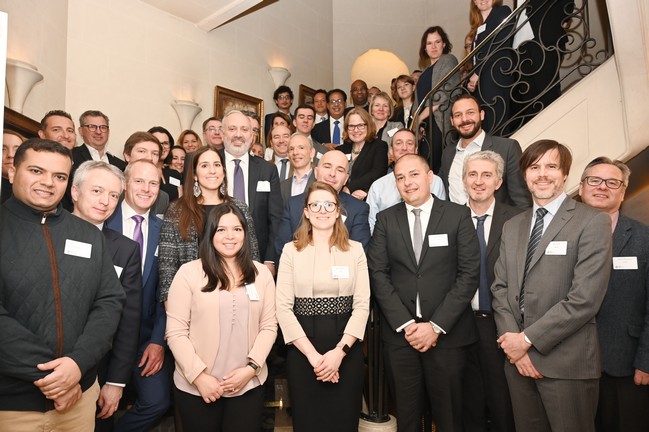816 results found
Featured results



More results
On 9 June 2019, the G20 Finance Ministers and Central Bank Governors endorsed new G20 Principles for Quality Infrastructure Investment at their meeting in Fukuoka, Japan.
This issue focuses on Urbanization and Infrastructure Development

Explore the capability of 56 countries to deliver infrastructure projects, identify priority reforms and pinpoint leading practices across infrastructure governance & institutions, regulatory frameworks, permits, planning, procurement and delivery.

Global Infrastructure Outlook allows you to explore the annual infrastructure trends, needs and gaps up to 2040 for 7 sectors, 56 countries, 5 regions and the world total.


Project preparation is a critical enabler of infrastructure development and has been identified as a key pillar in the G20 s strategic roadmap to develop infrastructure as an asset class.

The Climate and Disaster Risk Screening Tools developed by the World Bank, provide a systematic, consistent, and transparent way of considering short- and long-term climate and disaster risks in project and national/sector planning processes.

The IMF has compiled a suite of analysis, research, diagnostic tools, country reports, data sets, and other resources on the importance of public investment as a catalyst for economic growth.

A consultative workshop on the Global Infrastructure Hub’s upcoming reference guide on Output Specifications for Quality Infrastructure was held in Paris in partnership with Mott MacDonald on 15 April.
The Inclusive Design Standards bring together what LLDC consider the best of existing good practice guidance and consolidate this in a single benchmarking document to be used as a tool by design teams. This second edition of the London Legacy Development Corporation s (LLDC s) Inclusive Design Standards (IDS), originally published in March 2013, is evidence of the positive impact and continued legacy created by the enormous success of the Olympic and Paralympic Games held in London back in the summer of 2012.

The Infracompass explores the capability of 56 countries to deliver infrastructure projects, identify priority reforms and pinpoint leading practices across infrastructure governance & institutions, regulatory frameworks, permits, planning, procurement and delivery.


The third global report by Global Infrastructure Hub (GI Hub) and EDHEC Infrastructure Institute-Singapore reveals new investor insights on changing infrastructure markets.



The third global report by Global Infrastructure Hub (GI Hub) and EDHEC Infrastructure Institute-Singapore reveals new investor insights on changing infrastructure markets.


FOR CONSULTATION The draft Guidance Note on National Infrastructure Banks and Similar Financing Facilities is open for public consultation to capture your insights and feedback for the final version.
The third global report, 2019 Global Infrastructure Investor Survey, also revealed that investor appetite for emerging markets infrastructure is levelling. Respondents identified recent trends in monetary policy normalisation and greater emerging market foreign exchange rate risk as factors that may be driving investors away.
The Climate and Disaster Risk Screening Tools developed by the World Bank, provide a systematic, consistent, and transparent way of considering short- and long-term climate and disaster risks in project and national/sector planning processes.

In an effort to serve as a 'one stop shop' for climate-related information, data, and tools, the World Bank created the Climate Change Knowledge Portal (or CCKP).

Most infrastructure investment plans and government policies rely on the delivery of projects and programs. To achieve these and unlock the real benefits of infrastructure, it is vital that projects and programs are delivered well.
The Global Infrastructure Hub (GI Hub) and Sustainable Infrastructure Foundation (SIF) signed a Memorandum of Understanding (MoU) today to foster their cooperation and collaboration in the area of global infrastructure development.
In June 2016, under Japanese presidency, G7 Leaders endorsed G7 Ise- Shima Principles for Promoting Quality Infrastructure Investment, which has crystalized as definition of quality infrastructure investment.





 Quality Infrastructure Investor Database
Quality Infrastructure Investor Database






